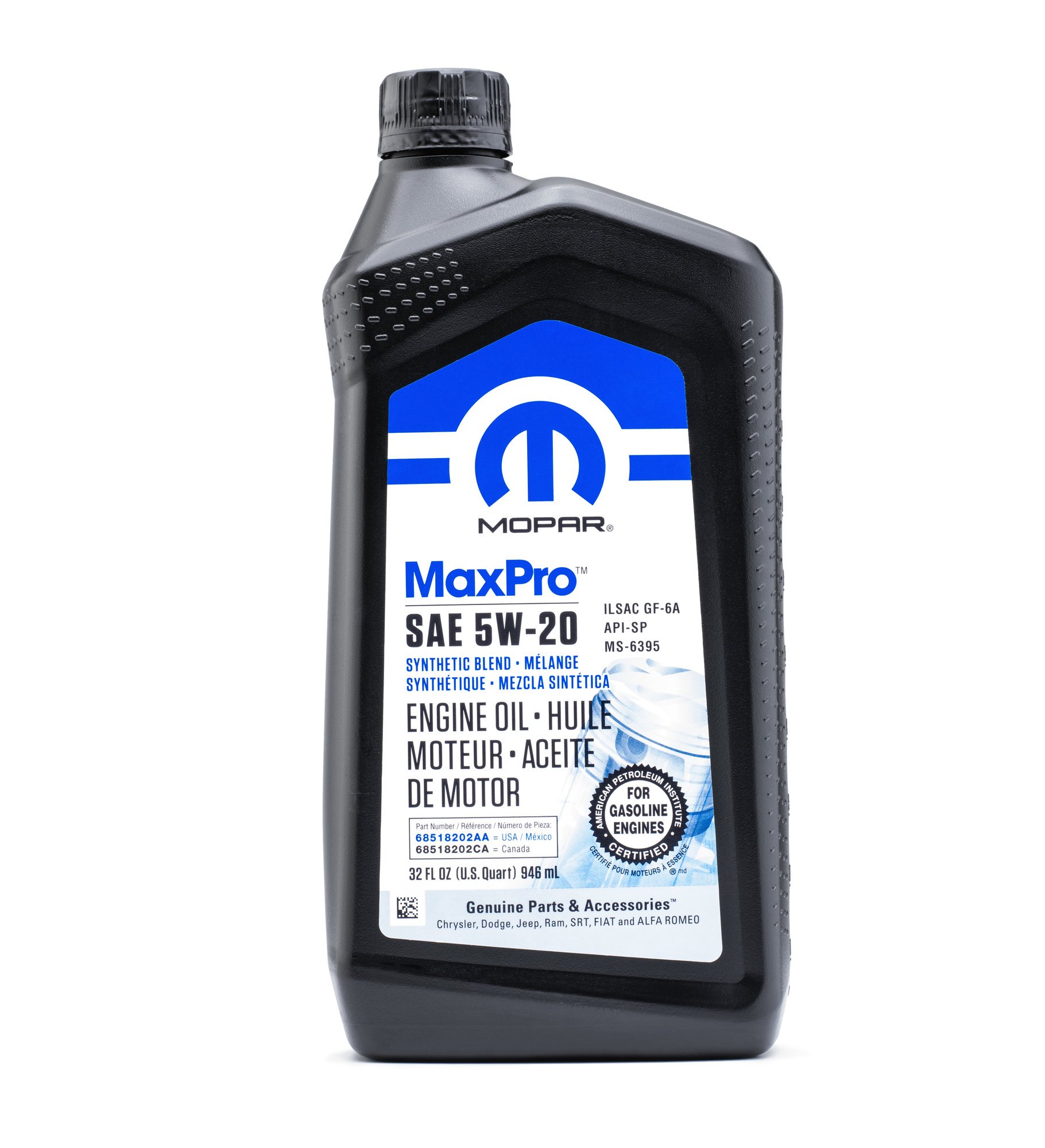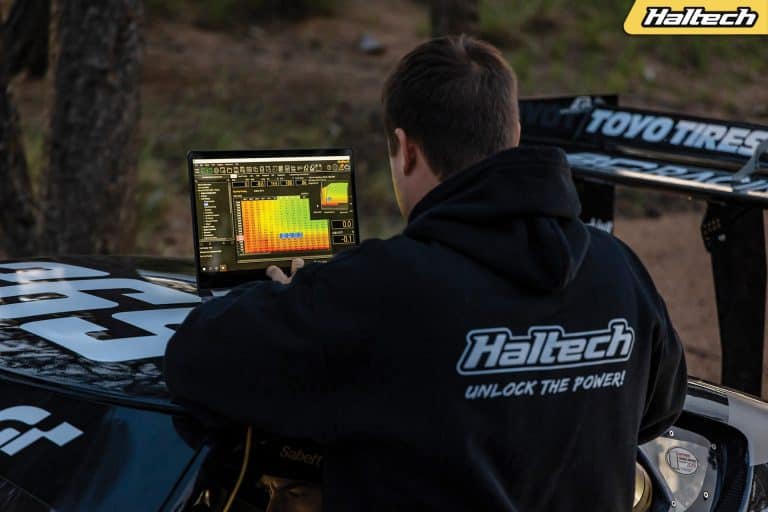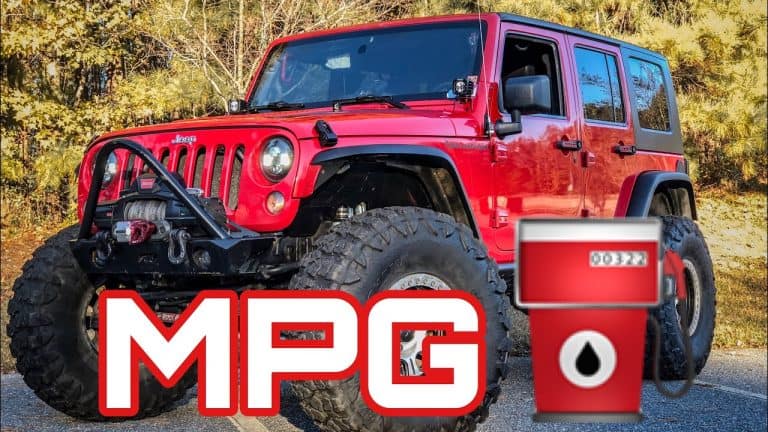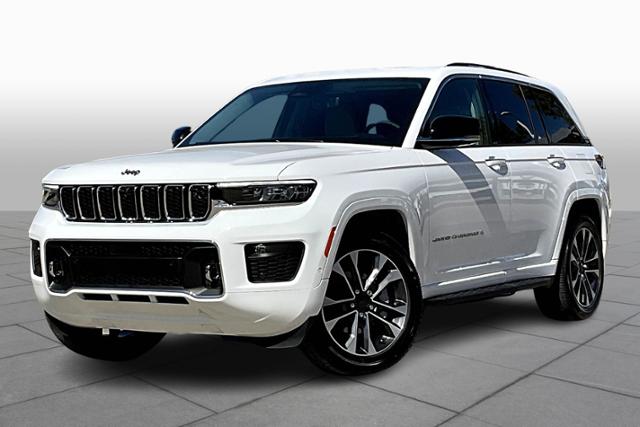Jeep 3.6 Engine Common Problems and Troubleshooting
The jeep 3.6 engine has had problems with cylinder head cracking and excessive oil consumption. These issues have caused significant trouble for jeep owners.
The jeep 3. 6 engine has had a bumpy ride for some time now. While this engine is powerful and reliable, various problems have been reported. One of the significant problems is the cylinder head cracking. This issue can cause significant damage to the engine and could lead to costly repairs.
Moreover, the engine has high oil consumption, which is a significant concern for the drivers. This can lead to various engine problems. Therefore, it’s crucial to be aware of these problems and take cautionary measures to avoid them. In this article, we’ll discuss these issues so jeep owners can make informed decisions.

Credit: www.quadratec.com
Understanding Jeep 3.6 Engines
Jeep enthusiasts and those in the automotive industry will be familiar with the jeep 3. 6 engine, which has been used in various jeep models. As with any engine, the 3. 6 has its fair share of issues that drivers have experienced over the years.
In this post, we will dive into the world of jeep 3. 6 engines, discussing its brief history, popularity, and unique features.
Common Jeep 3.6 Engine Problems
Jeep 3.6 Engine Problems
Are you experiencing issues with your jeep 3. 6 engine, or are you considering purchasing one? As with any vehicle, there are common problems to be aware of before making a decision. In this post, we’ll discuss the most common jeep 3.
6 engine problems and how to identify them before they escalate.
Discussing The Common Issues That Jeep 3.6 Engine Owners Experience
Jeep 3. 6 engine problems are not uncommon, but many of them can be fixed before they turn into serious issues. Here are some of the most common problems jeep 3. 6 engine owners experience:
- Radiator fan failure: Some jeep 3.6 engine models are prone to radiator fan failure. It can cause engine overheating and ultimately damage other components of the engine.
- Oil pump failure: The oil pump is responsible for keeping all the engine components lubricated. If it fails, it can cause engine damage and eventually lead to complete engine failure.
- Low oil pressure: Low oil pressure can indicate a variety of issues, including oil pump failure, worn engine bearings or improperly adjusted valves.
- Excessive oil consumption: If your jeep 3.6 engine is burning through oil quickly, this can be a sign of a faulty pcv valve, worn piston rings, or damaged valve guides.
- Misfire: Misfires can be caused by various factors, such as a malfunctioning fuel injector, a clogged fuel filter, or a cracked spark plug.
How To Identify These Problems Before They Escalate?
If you are the owner of a jeep 3. 6 engine, it’s important to keep an eye out for potential problems and fix them as soon as possible to prevent further damage. Here’s what you can do:
- Pay attention to warning signs: Don’t ignore dashboard warning lights or unusual engine noises. These can be early indications of a problem that needs to be addressed as quickly as possible.
- Check the oil: Regularly check the oil level, and look for signs of contamination or low pressure. Low oil pressure and excessive oil consumption can cause serious damage to the engine.
- Inspect the radiator fans: Check the radiator fans for any signs of wear or damage. If they are not functioning correctly, it can cause engine overheating and damage.
- Perform regular maintenance: Regular maintenance, such as oil changes and tune-ups, can help to identify potential problems before they become major issues.
By keeping a keen eye out for these common jeep 3. 6 engine problems and addressing them early on, you can avoid costly repairs and keep your jeep running smoothly for years to come.
Causes Of Jeep 3.6 Engine Problems
Discussing The Reasons That Lead To Common Engine Issues In Jeep 3.6 Vehicles
Jeep 3. 6 engines are reliable, but they can still experience issues due to several reasons. Here are the three most common causes of jeep 3. 6 engine problems:
Lack Of Maintenance And Tune-Ups
Like any engine, the jeep 3. 6 engine requires ongoing maintenance and tune-ups to perform its best. A lack of maintenance can cause engine problems like:
- Overheating
- Poor fuel economy
- Reduced power and acceleration
- Carbon build-up
- Broken or worn-out engine parts
To prevent these issues, it’s essential to have the engine checked regularly and stick to the recommended maintenance schedule. Regular tune-ups can identify and fix problems before they become more severe, ensuring that your engine runs smoothly for years.
Extreme Off-Roading Conditions
Jeep vehicles are known for their off-road capabilities, but extreme off-roading conditions can put excessive strain on the engine, leading to problems like:
- Damaged oil pan or oil pump
- Vacuum brake booster failure
- Bent rods or damaged crankshaft bearings
- Broken camshaft or lifters
While off-roading is fun, it can take a toll on your jeep’s engine. If you frequently take your jeep off-road, it’s best to ensure that the engine is checked regularly and that necessary repairs are completed promptly.
Inferior Quality Engine Parts
Inferior engine parts can affect the performance and longevity of the jeep 3. 6 engine. Typically, these parts are not genuine jeep products and may not meet the oem quality standards.
Here are some issues you may face with inferior quality engine parts:
- Overheating issues
- Poor fuel economy
- Reduced acceleration and power
- Malfunctioning of engine sensors
- Rough idling and engine misfires
It’s critical to use high-quality, genuine jeep parts to ensure your engine performs optimally. Cutting costs by using inferior quality parts may lead to more significant expenses in the long run, as it can cause severe damage to your engine.
The jeep 3. 6 engine is a reliable performer when correctly maintained and cared for. Keep in mind the three most common causes of engine problems – lack of maintenance, extreme off-roading conditions, and inferior quality engine parts – to avoid costly repairs down the road.
How To Prevent Jeep 3.6 Engine Problems
Jeep 3.6 Engine Problems
Jeep drivers know that a trusted vehicle is essential to have while enjoying off-road adventures. To ensure your jeep 3. 6 engine lasts for many miles, there are some key things you need to keep in mind, including regular maintenance, tune-ups, and safe off-roading practices.
In this blog post, we will take a look at the common problems that jeep 3. 6 engine faces and how you can prevent them from happening.
Best Practices To Keep Your Jeep 3.6 Engine Running In Optimal Condition
Maintaining a jeep 3. 6 engine is relatively straightforward if you follow the manufacturer’s guidelines. By routinely looking after your vehicle, you can help prevent costly mechanical failures. Here are some best practices to keep your jeep engine in optimal condition:
- Change the oil regularly: Regular oil changes are essential to keep the engine lubricated and prevent it from overheating and premature wear. Jeep recommended changing the oil every 7,500 miles.
- Check your fluids regularly: It is vital to keep the fluid levels consistent in your jeep 3.6 engine. Check the coolant, brake fluid, clutch fluid, and transmission fluid levels and ensure they are all within the recommended levels.
- Replace air filters: Air filters can clog with debris, leading to poor engine performance and reduced fuel economy. Jeep recommends changing the air filters every 30,000 miles.
- Use recommended parts and fluids: Using non-recommended fluids and parts can result in engine problems. To avoid this, always use parts and fluids recommended by jeep.
Regular Engine Maintenance And Tune-Ups
Apart from the aforementioned best practices, it is also critical to keep up with routine maintenance and tune-ups to prevent jeep 3. 6 engine problems. Here are some steps you can take:
- Check the spark plugs: Keep a watchful eye on your spark plugs as they can get fouled and cause engine misfires. Jeep recommends replacing them every 30,000 miles.
- Inspect the serpentine belt: Serpentine belts are responsible for running various engine components such as alternators and water pumps. Ensure that the belt looks okay, without cracks or chips, and replace belts that show signs of wear.
- Have a certified technician inspect the engine regularly: Take your jeep to a certified technician every year for a thorough inspection to identify any underlying problems and fix them before they escalate.
Tips For While Off-Roading In Your Jeep 3.6 Engine Vehicle.
Jeep 3. 6 engine can handle serious off-roading, but it is still essential to take precautions to avoid engine damage. Here are some tips for safe off-roading in your jeep:
- Adjust tire pressure: When off-roading, lower your tire pressure slightly to increase traction. Remember to re-inflate the tires after your off-road adventure.
- Avoid excessive idling: Idling for extended periods can cause overheating and premature engine wear. Avoid idling and try to switch off the engine when you do not need it.
- Drive with caution: When off-roading, do not rev your engine too high and drive within the recommended speed limits for the terrain you are driving on.
By following these best practices for jeep 3. 6 engine maintenance and regular tune-ups and practicing safe off-roading tips, you can prevent costly engine problems and prolong the life of your jeep.
Diagnosing And Fixing Jeep 3.6 Engine Problems
How To Identify Engine Problems And Troubleshoot Them?
Jeep 3. 6 engine problems can cause a lot of headaches for jeep owners. Your jeep may start to run rough, stall, or have decreased fuel efficiency. If you suspect that your jeep is experiencing engine problems, here are some steps to help you identify and troubleshoot the issue:
- Pay attention to warning signs: Keep an eye out for any warning signs like the check engine light coming on or strange noises coming from the engine. Ignoring these warning signs could lead to more significant problems.
- Check engine oil level and quality: Make sure to check the engine oil level and quality regularly. Low oil levels or poor quality oil can lead to engine problems.
- Inspect spark plugs and spark plug wires: Faulty spark plugs and spark plug wires can cause misfires and rough idling.
- Examine the battery: A weak battery can cause the engine to run poorly, so check the battery voltage regularly.
- Test the fuel injectors: If the fuel injectors are not working correctly, it can lead to a lean or rich fuel mixture, resulting in poor engine performance.
Diagnosis Steps
If your jeep is experiencing engine problems, here are the steps you should take to diagnose the issue:
- Check fault codes: Use an obd-ii scanner to check for any fault codes in the engine control module. This will give you a better idea of what is going wrong with the engine.
- Test engine compression: Testing engine compression can help identify internal problems such as a worn valve, piston, or cylinder.
- Inspect the timing belt: Check the timing belt for any signs of wear or damage. A broken or worn timing belt can cause significant engine damage.
- Check the air and fuel filters: Dirty or clogged air and fuel filters can cause the engine to run poorly, so make sure to check them regularly.
Fixing Common Problems
Once you have identified the problem, here are some common solutions:
- Replace faulty sensors: Faulty sensors can cause the engine to run poorly, so be sure to replace them.
- Replace spark plugs and spark plug wires: Replace faulty spark plugs and spark plug wires to maintain engine performance.
- Replace the battery: A weak battery can cause the engine to run poorly, so replace the battery if necessary.
- Repair or replace damaged parts: Damaged parts like the timing belt or fuel injectors should be repaired or replaced to keep your engine running smoothly.
By following these steps, you can identify and troubleshoot engine problems in your jeep 3. 6 engine. Regular maintenance and timely repairs can keep your jeep running smoothly for years to come.
Frequently Asked Questions For Jeep 3.6 Engine Problems
What Are The Common Jeep 3.6 Engine Problems?
The common jeep 3. 6 engine problems include oil leakage, cylinder head failure, and ticking noise.
How Can I Prevent Oil Leaks In My Jeep 3.6 Engine?
You can prevent oil leaks in your jeep 3. 6 engine by regularly changing the oil, maintaining the gaskets and seals, and ensuring proper installation of engine parts.
What Causes The Ticking Noise In My Jeep 3.6 Engine?
The most probable cause of ticking noise in your jeep 3. 6 engine is the inadequate oil pressure, which can be due to oil starvation, low level, or oil pump malfunction.
What Is Cylinder Head Failure In Jeep 3.6 Engine?
Cylinder head failure in the jeep 3. 6 engine is a problem that occurs when the engine overheats, causing cracks, leaks, and warping, leading to poor engine performance.
How Much Does It Cost To Repair Jeep 3.6 Engine Problems?
The cost of repairing jeep 3. 6 engine problems depends on the extent of the damage and the repair required. It can range from $500 to $5000 or more.
Conclusion
Ultimately, the jeep 3. 6 engine’s problems highlight the need for regular maintenance and awareness of known issues. From oil consumption to engine misfires, these issues can cause significant frustration and financial burden for jeep owners. However, by staying up-to-date on recalls and regularly checking for warning signs, drivers can potentially avoid costly repairs and keep their jeep running smoothly for years to come.
Moreover, partnering with a trusted mechanic can help catch problems early before they worsen or cause damage to other parts of the vehicle. With vigilance and a bit of care, overcoming the challenges posed by the jeep 3. 6 engine is possible, allowing drivers to continue enjoying their beloved jeep without fear of breakdowns or unexpected repairs.
So, regular checks with your mechanic and keeping an eye out for recalls for your vehicle model can go a long way in mitigating any potential issues with your jeep.







